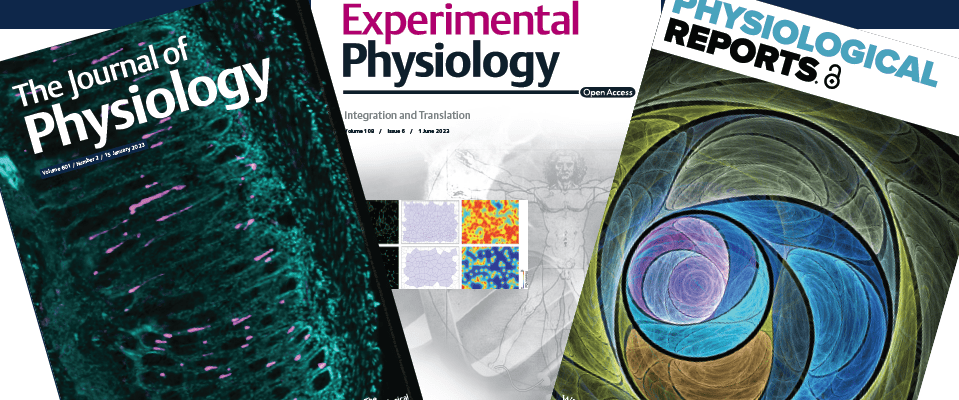by Lucinda Periac-Arnold, Head of Publishing
During Peer Review Week, we celebrate our brilliant peer review team, who help maintain the integrity of research and make our family of journals discipline leading.
This week marks 2023’s Peer Review Week, with this year’s theme centred on The Future of Publishing. Before looking to the future, I’d like to think about the long history of The Physiological Society’s publishing activity, which spans over 145 years when The Journal of Physiology (JP) was born, in 1878. Soon after in 1908, Experimental Physiology (EP) was launched. And in more recent history, Physiological Reports – a born Open Access journal from The Society and our partner the American Physiological Society – is approaching its 10 year anniversary this December. Our family of journals lead the discipline, promoting best practice and pushing the boundaries of scientific endeavour.
One of the most special aspects of our publishing programme is the continued support to our editors, authors and reviewers by our in-house peer review team. Collectively, the three members of our peer review team, Diana Jones, Marie Allan and Paroma Guha, have over 40 years of experience in running the peer review of The Journal of Physiology and Experimental Physiology. Pillars of the community that makes up our journals, their collective experience and wisdom ensures the continued reputation of excellence and integrity that JP and EP are known for.
Turning to the future of publishing and the role of peer review. By no means is peer review a system without its flaws but with the rising adoption of open peer review, and the development of more sophisticated tools to weed out the few bad actors attempting to manipulate the process, our team dedicate their time to ensuring that the submission, review and decision making process for publishing in our journals is the best that it can be.
Recent activity in the peer review team has seen the improvement of our transfer process, a service of increasing importance to authors as the publishing landscape develops. By offering refer & transfer from our journals in the event of a reject decision, we help authors navigate the vast array of alternative journals to submit to. Working closely with our submission system provider, eJournal Press, the team have ensured that if an author is offered refer & transfer, that their free form manuscript and any accompanying comments from reviewers and editors are passed directly on to the destination journal, meaning a faster turnaround time to decision with no need for authors to reformat a manuscript to fit the new journals requirements.
The team have also worked hard to improve the language in our decision letters, highlighting important information to authors, such as our publishing partner Wiley’s Transformative Agreement coverage, which allows authors to publish Open Access without being personally responsible for any associated Article Processing Charges (APCs).
As we press ahead into the unnavigated waters of the publishing industry’s future, we remain committed to providing this unrivalled service to the physiology community. As the landscape for authors, editors and reviewers changes, our experienced and agile team are ready to adapt along with the community, providing sure and steady hands to support the publication of cutting edge, high impact research – a key element of The Society’s mission to inspire discovery for healthier lives.
We are extraordinarily proud of our peer review team, and this week, we take a moment to celebrate their dedication, hard work and contribution to the discipline of physiology.
Our peer review team:

